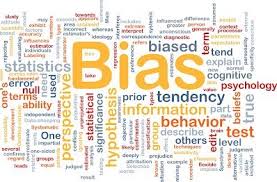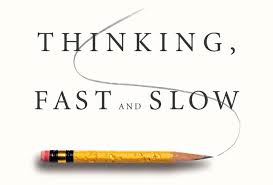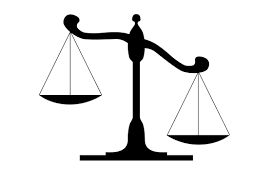I recollect a poem during my school days where the little girl finds it difficult to remember 6 multiplied by 9 while learning the table of 6. So she creates a mental shortcut and says 6 multiplied by 9 is ‘doll’. And assigns 54 to a doll. During exams she remembers ‘doll’ and forgets 54.
Does this happen to you and me? We try to use mental shortcuts basis our experience and some-times they go wrong.
Here is a small and interesting situation for you to solve. And you just have 10 seconds to solve it.
A bat & a ball costs Rs. 110
Bat costs Rs. 100 more than the ball
How much does the ball cost?
What answer did you give? Mostly it must have been Rs. 10/-.
So what happened when we were arriving at this answer?. There is some mental calculation we did, used some shortcuts basis our previous learning and experience and arrived at a solution, right?
An easy puzzle that evokes an answer that is intuitive, appealing and wrong.
Check again. The right answer is Rs. 5/-.
Note: I converted the original example into Indian rupees. The original example is $ 1.10 used by noble laureate (Economics) Dr. Daniel Kahneman & Shane Fredrick while working on theory of judgment.
Here are some more situations:
- Wife gets a dress for her and asks her husband to guess the price. If the husband quotes the price that is higher than the purchase price, he had it. He needs to be smart enough to tell the price lower than the purchase price and get dumbed at a smart bargain the wife made while buying the dress. This by the way can be a good secret for a happy married life!!!
- If you invest in stock market, does it happen to you that when the prices of shares start moving up, you tend to buy more?
- Have you splurged money in the mall due the irresistible offer(s) (never before; never after types) and got reprimanded even from your little daughter for the childish behaviour?
If all of it or some of it is true, welcome to Heuristics.
Heuristics are simple, efficient rules which people often use to form judgments and to make decisions. They are mental shortcuts that usually involve focusing on one aspect of a complex problem and ignoring others.
Put in other words Heuristics (Greek word meaning ‘to discover’) is an approach to problem solving that takes one’s personal  experience into account.
experience into account.
Heuristic conclusions are faster and speedier since they are based on your experiences but they may not be accurate. These rules work well in most of the cases but can lead to systematic errors as we have seen with the bat & ball example earlier.
Heuristics has found applications in many fields. One of them is behavioural finance or behavioural economics.
Did you notice that Rs.799/- shirt or a she appeared costing much lesser than Rs. 800/-? Many companies have since long used this method to draw attention and improve sales.
In 2008, researc hers at the University of Southern Brittany monitored a local pizza restaurant that was serving 5 types of pizzas at €8 each. When one of the pizzas was reduced to the price of € 7.99, its share of sales rose from one third of total sale to half of the total sale. Dropping the price by one cent, an insignificant amount in monetary terms, was enough to influence customers’ decisions dramatically.
hers at the University of Southern Brittany monitored a local pizza restaurant that was serving 5 types of pizzas at €8 each. When one of the pizzas was reduced to the price of € 7.99, its share of sales rose from one third of total sale to half of the total sale. Dropping the price by one cent, an insignificant amount in monetary terms, was enough to influence customers’ decisions dramatically.
The dilemma of slow versus fast:
It is exciting to use intuition while making decisions. It is exciting because it allows us to access the experience of the past and basis that jump to conclusions. It’s fast. It allows us eliminate steps.  The other side of it is that it can also be misleading.
The other side of it is that it can also be misleading.
Hence classifying the activities is imperative. For some activities we can take faster decisions basis our experience but with a preparedness of margin of error. Dr. Daniel Kahneman calls this the system 1 thinking. For the other activities or decisions a slow, deliberate, thinking mode can be used. Even if it means more efforts and relatively longer time. Dr. Daniel Kahneman calls this as System 2 thinking.


Bhushan, your Blogs are very well articulated, shot but to the point and rich in contains. It reflects your deep study of subject.